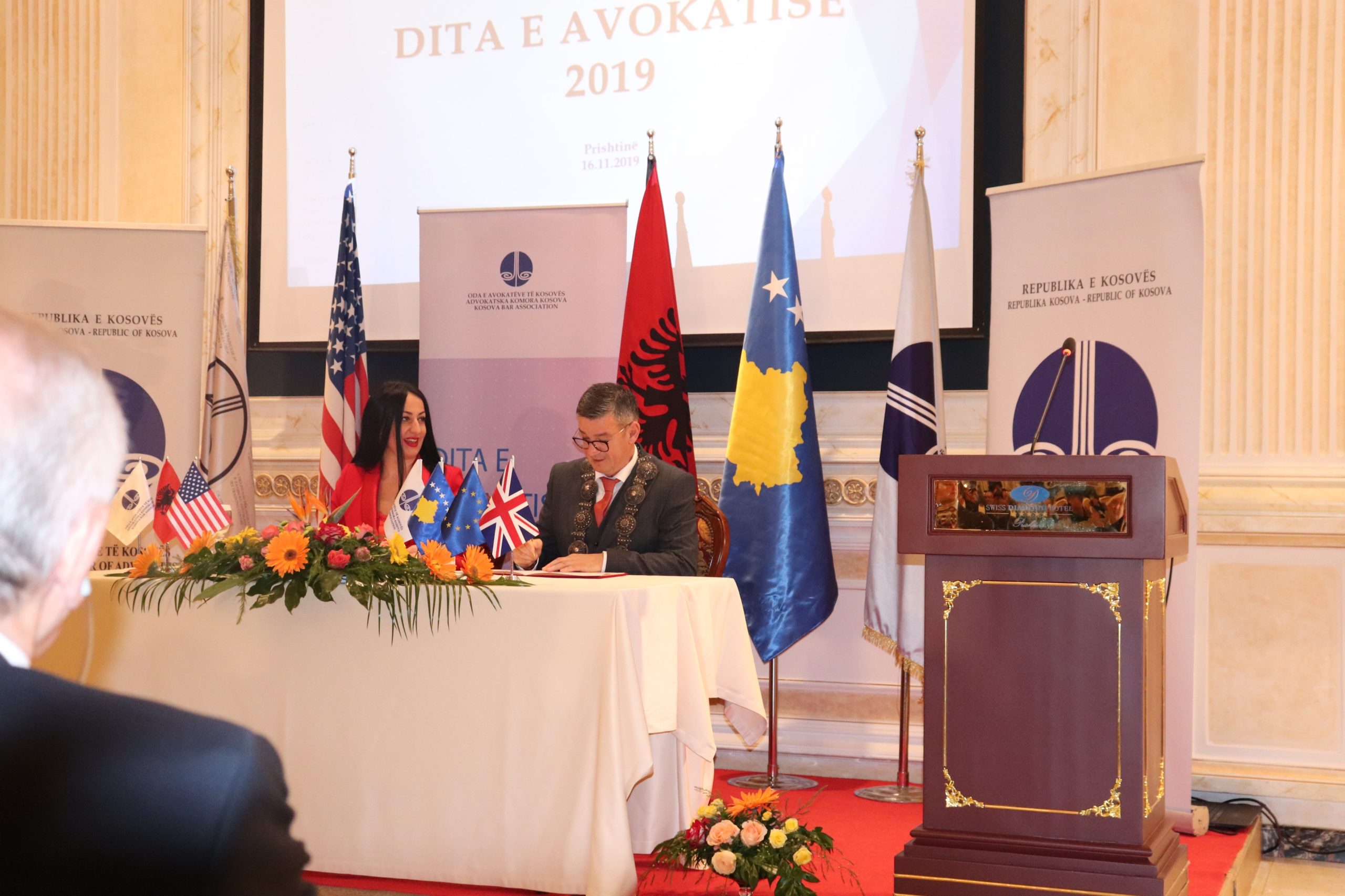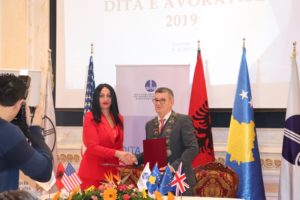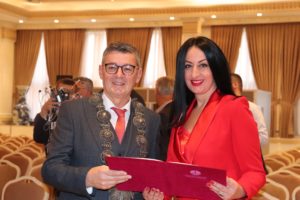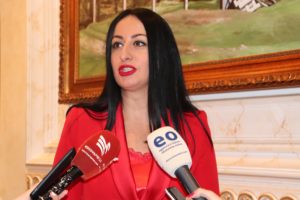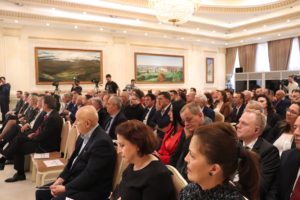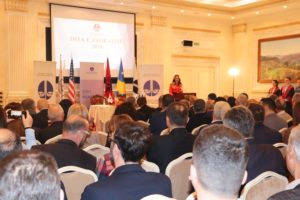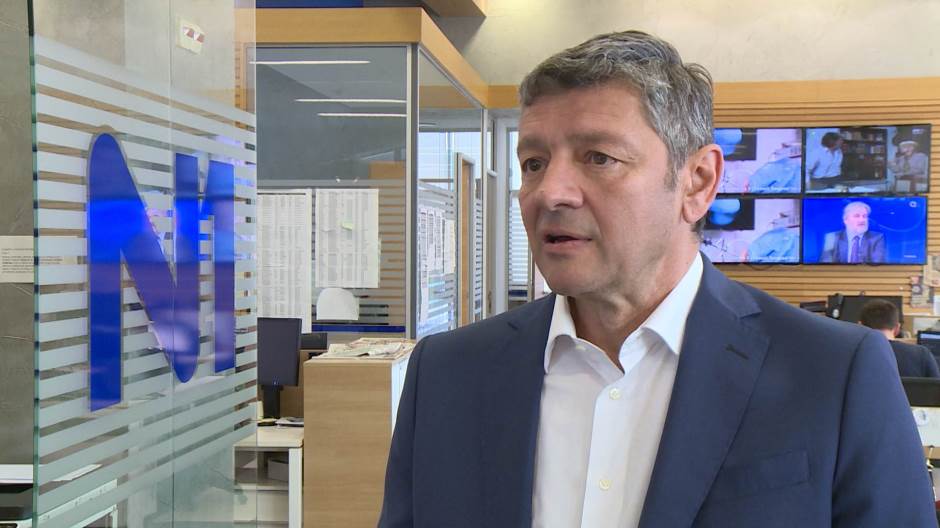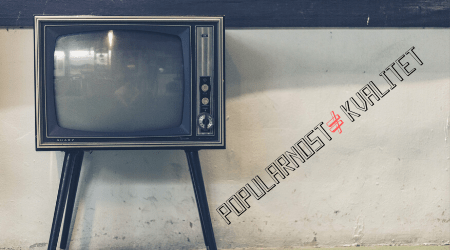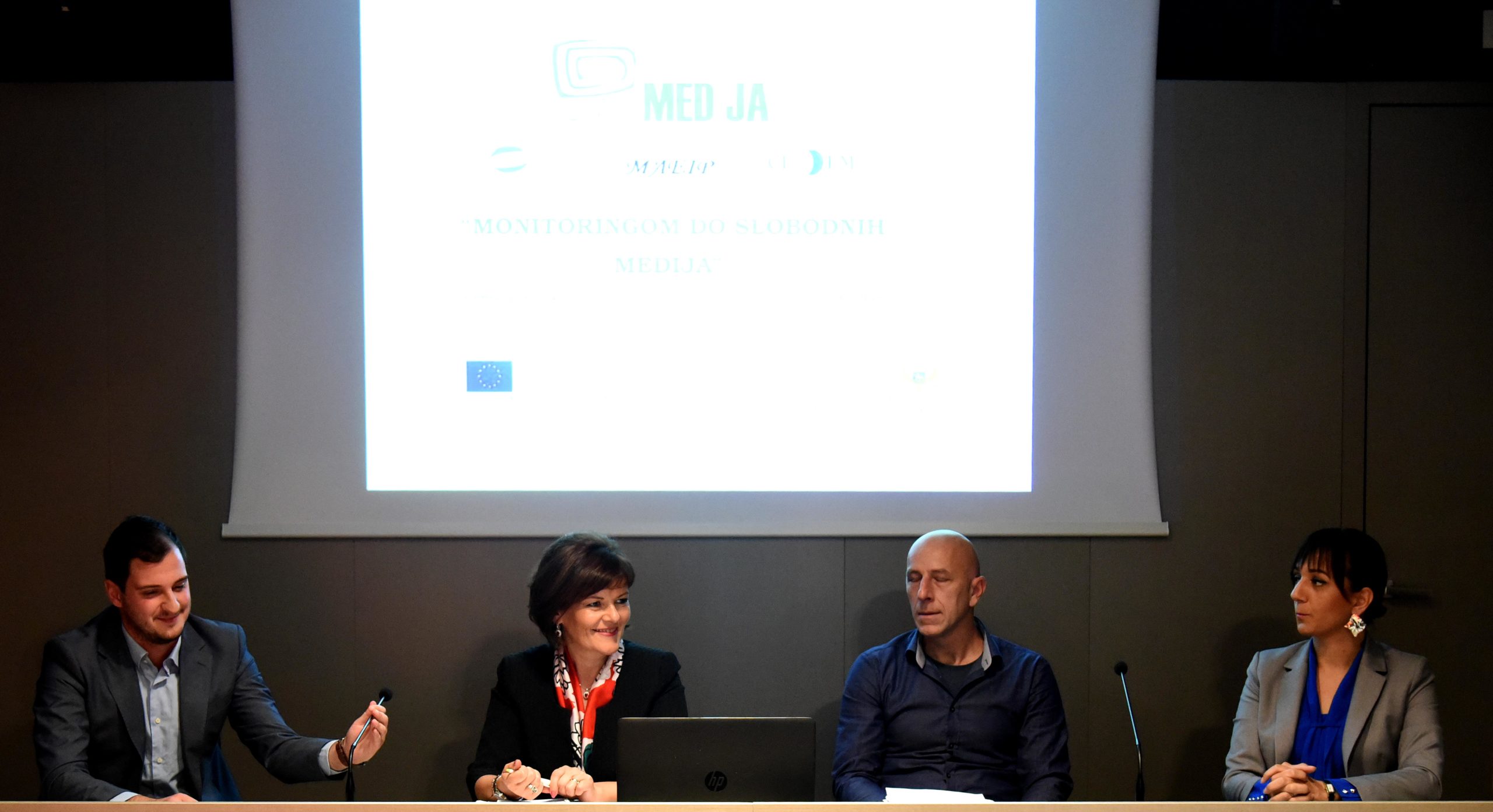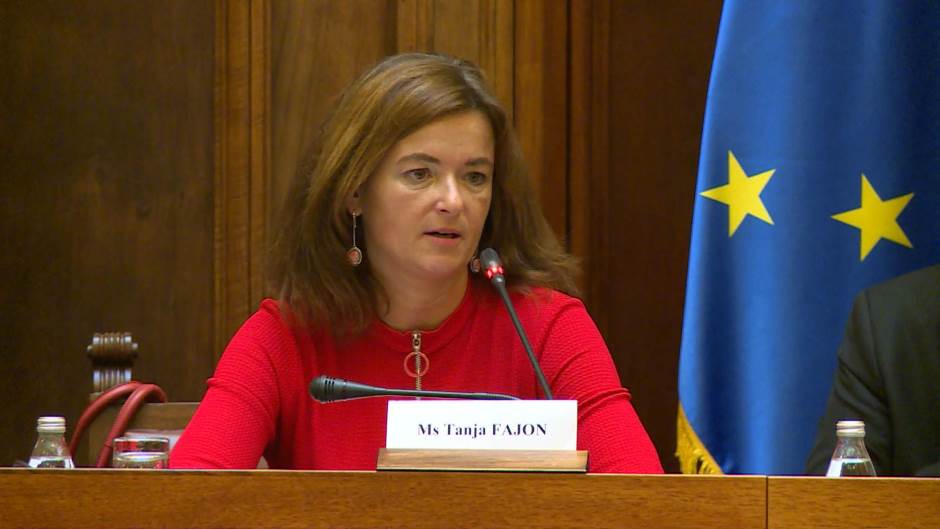PODGORICA, 18.11.2019. – There are more than 140 media on the small Montenegrin market with 625,000 inhabitants. According to the official registry of the Agency for Electronic Media (AEM) most of them are web portals – 57, including the few which are not registered but produce informative media content from Montenegro. There are 53 radio stations, out of which 16 public broadcasters (2 programs of the national radio and 14 local public broadcasters) and 37 private radio stations. Additionally, there are 22 television or TV channels. The national public broadcaster has 3 TV channels. In addition, there are 3 private television stations with national coverage, as well as 5 local public television. The other 11 are cable television. In Montenegro, there are 4 daily newspapers, 1 weekly newspapers, several periodical newspapers and 1 news agency.
Analysis of the financial statements from the website of the Tax Administration of Montenegro for 70 major media outlets, which generate over 95 percent of total revenues, shows that in 2018 they together earned about 35.7 million. Expenses amounted nearly 35.4 million, which means that the final profit amounted around 300 thousand euros. If we consider the remaining, less media, which are not included in this analysis, we can say that the Montenegrin media sector last year earned about 36 million euros. However, almost half, or at least 16.5 million, came from public sources (from the state budget and budget of local governments) while 19.5 million consists of income from marketing, other services or grants of their founders.
Public broadcasting services
The national public broadcaster Radio-Television of Montenegro (RTCG) has the biggest amount of the money in Montenegro. Within the RTCG there are 6 media, 3 television channels (Prvi, Drugi and Satellite channel), two programs of Radio of Montenegro and the RTCG portal. According to the financial report for 2018, the RTCG has earned nearly 14 million euros in total. The largest part of that, or 12.5 million came directly from the state budget while 1.17 million came from marketing and other commercial revenues, such as donations which generate 180 thousand euros. Total expenditures amounted to 13.32 million euros, out of which the most, 7.84 million, was allocated to salaries of employees. At the end of 2018, the Public Broadcasting Service has 717 employees. Finally, at the end of 2018 the RTCG had profit of 650 thousand euros. The financial report has highlighted that the Public Broadcasting Service has a debt of over 3 million euros to the radio-Difussion Center, as well as accumulated losses from previous years, which will be partly covered from the profit made in 2018.
Additionally, in Montenegro, there are 14 local public broadcasters founded by municipalities and are mostly funded from local budgets. All of them have radio stations, most of them in recent years launched web portals and 5 of them have TV channels.
The Radio Television (RTV) Budva has the largest budget among these media. Its last-year revenues amounted nearly to 950,000 euros, out of which 810,000 came from the local budget and the revenue from advertising and other revenues amounted to 140,000. Total expenditures amounted around 850,000 which means that the RTV Budva made profit amounting to around 95,000 euros and had 53 employees.
Radio-Television (RTV) Niksic has a smaller budget than RTV Budva but the largest number of employees among the local public broadcasters. In 2018 there were 69 employees. Last year, the RTV Niksic ended the business year with the surplus amounting to around 11,000 euros, with total revenues of 752.5 thousand euros (over 600,000 from municipality of Niksic and almost 130 thousand from marketing), while expenses amounted slightly more than 740,000 euros.
Among local public broadcasters, which have radio and television channels, the Radio-Television (RTV) Rozaje had the biggest revenue minus. Reported loss amounted to more than 90,000 euros, with revenues of 200,000 (which are almost all from the local budget) and expenditure of 290,000. The RTV Rozaje had 25 employees in 2018.
The minus of nearly 70,000 was recorded in the Radio-Television (RTV) Pljevlja. Total revenue was approximately 312,000 euros and total expenditure at around 380,000 while in this media there was 32 employees.
Radio – Television (RTV) Cetinje, which has not have the classic television channel but reporters film the TV reports and then broadcast them on their web portal, ended last year with a minus of 12.5 thousand. Total revenues amounted to 170,000 (out of which 138.5 thousand from the budget of the old royal capital of Cetinje) and expenses 182.5 thousand. 14 people worked in this media.
Radio – Television (RTV) Ulcinj, which, also, has not formed the television yet, (only radio), ended 2018 with a loss of 26,000 euros. Operating revenues amounted to 104,000 euros and 99 percent came from local budge, while expenditures amounted to 130,000. 10 people worked in this media. Accumulated losses from previous years has led to the fact that in 2019 they owed up to 15 salaries to their employees.
Radio Bar, with 25 employees, had revenues amounting to 344.5 thousand euros, expenses amounting to 343.2 thousand, while net profit at year-end amounted to 1.3 thousand euros.
Radio Herceg Novi, which during 2019 launched TV channel, ended last year with surplus amounting around 15,000 euros. Revenue came in the amount of 253,000 euros and expenses amounted to 238,000 for 20 employees. Radio Tivat 2018 ended with a minus of 1.3 thousand euros. Revenues, almost all from the local budget, amounted to around 254,000 euros and expenses to 255,000. It had 16 employees.
Radio Kotor had surplus around 6.5 thousand euros, with revenues amounting to 179,000, again, mostly from the local budget and 172,000 of expenses, and 13 employees.
Radio Bijelo Polje during 2018 had 12 employees and a net profit of 7.5 euros. Incomes are mainly from the local budget, about 183.5 thousand and the total expenses amounted to 176 thousand. Radio Berane was finished 2018 in the red by more than 50 thousand. Expenses were almost 206 thousand euros and revenues 155.5 thousand, including nearly 144 from the local budget, and 11.7 thousand of marketing. In this media, there were 23 employees who are in the worst position of the media in the north of the country because they are owed for years 8 salaries.
The smallest among local public broadcasters, Radio Andrijevica and Radio Danilovgrad, variously operated last year. Radio Danilovgrad with 8 employees had a profit of 2.5 thousand euros, with all the revenue from the local budget amounting to 93.5 thousand euros and expenses which amounted to 91 thousand. Radio Andrijevica has more employees, 10, as well as lower revenues amounting to 77.3 thousand euros and expenses to 78 thousand. So, this media operated with 767 euros of loss.
In general, local public broadcasters in 2018 had all together just over 4 million of revenue, which, along with the RTCG, makes 18 million euros, mainly from the public budget. When we combine their financial statements for 2018, they had a total loss of about 100,000 euros. The problem with the significant number of this media is accumulated losses from previous years, which in some cases measured in hundreds of thousands of euros, which was formed mainly due to accumulated debts for contributions for 330 employees.
Newspapers
The highest income among private Montenegrin media in 2018 were realized by newspapers, some of which have portals.
During last year, daily newspaper “Dan” achieved net profit of 108,000 euros. Revenues were almost to 3.5 million, nearly all from the direct sale of newspapers and marketing, and expenses were nearly 3.4 million. The “Jumedia mont” company, which publishes “Dan” also includes two radio stations –”D” and “D+”. 87 people were employed in these 3 media during 2018.
The daily newspaper ,,Vijesti” and its web – portal, two media within the company Daily Press, in 2018 made a profit of almost 165,000 euros. Total revenues were nearly 3.1 million, out of which 95 percent, or 2.95 million consisted of marketing and selling newspapers. 118 people were worked in these media.
Nova Pobjeda, which publishes the oldest Montenegrin daily “Pobjeda”, last year ended with a plus of just over 100,000 euros. Total revenues were approximately 2.5 million, expenses 2.4 million euros and they employed 114 people.
The only Montenegrin daily newspaper, operated with the loss last year, is “Dnevne novine”. It had total loss of 95,000 euros. This newspaper earns much less than the others and in 2018 generated 700 thousand euros but expenses were amounted to 795 thousand. It was a lot less employees, 45.
The only Montenegrin weekly newspaper “Monitor” had loss of 1,3 thousand euros last year. Total revenues amounted around 110,000, expenses 111.3 thousand and it had 5 employees.
These data shows that the Montenegrin daily and periodic press are still stable, although in recent years a decrease in circulation of almost all print media in Montenegro has been registered. There are more and more web portals which attract the attention of public. However, the marketing share for print media was at the level of several million euros. It is impossible to reveal the exact amount of marketing income from the financial statements because the total revenues of the print media in Montenegro in 2018 amounted to almost 10 million with over 90% of them coming from sale, also including the sale of newspapers at newsstands. In general, the Montenegrin newspapers in 2018 ended with a total profit of 290,000 euros and this was achieved with 350 employees. However, some newspapers have a large tax debt from the previous period which is repayable at the moment, as well as accumulated losses from previous years.
Television
At the scale of revenues among private media in Montenegro, second place is occupied by the television. In 2018, some TVs had significantly higher profits than newspapers. However, some of them had a great loss.
In 2018, Television “Vijesti” had total revenues of 2.1 million euros and expenditures of slightly more than 1.7 million, which means that the net profit, after taxation, was almost 400,000 euros. It is the largest profit among Montenegrin private media in the past year and was achieved with 68 employees.
TV Nova M had a loss of 773,000 euros last year, the largest reported among Montenegrin private media. They had high revenues of nearly 1.95 million as well as a huge expenditure of over 2.75 million. This is possibly a result of the fact that, during 2018, its owners had additional costs and investment when purchasing the TV Pink Montenegro. This television after buying were renamed to “Nova M” and it had 67 employees.
The third private television station with national coverage in Montenegro, Television Prva, had a profit of 10,000 euros in 2018. Total revenues were 1.62 and expense 1.61 million. There were 41 employees in the TV Prva.
Immediately after the previous Pink M was sold and renamed the Nova M, its former owner was re-established in Montenegro the cable channel Pink M. For 4 months of last year he had a loss of 26 thousand euros. This was the income and total expenses were 52 thousand and had only 2 employees.
TV A1, which is established on the basis of the former Atlas TV (which is in bankruptcy), operated with a loss in 2018. In the financial report of its founder, the company Atlas Media Group, a loss of nearly 250,000 euros has been reported. Total revenues were only 15,000 euros and expenses almost 265,000. 9 people worked for the Television A1.
Cable TV “Corona” from Bar had profit of 22,000 euros in 2018, with revenues of just over 60 thousand and an expense of 38,000 euros, with 2 employees.
Cable TV “San” from Bijelo Polje had a loss of 2.5 thousand euros. 4 employees generated an income of 52.5 thousand euros while total expenses amounted to 55,0000 euros.
Cable TV “Novi” from Herceg Novi had a loss of 33,000 euros in 2018. Revenues amounted to 23.5 thousand euros and expenses to 56.5 thousand. This television reported that have only one employee.
TV Teuta achieved the best business results among private cable TV. This TV from Ulcinj realized a profit in 2018 of more than 70,000 euros. Revenues amounted to 465,000 and expenses to 395,000. 14 people worked in TV Teuta.
Television “Srpska” is one of the cable televisions, as a media of the minority Serbian population in Montenegro, largely financed by the Fund for the protection and exercise of minority rights which is a part of the state budget. Last year, together with “Srpski” radio, it generated a little loss of 400 euros, with revenues of 168.1 thousand euros (of which 35.7 thousand euros from commercials) and expenditures of 168.5 thousand euros and did not have any permanent employee.
Considering major cable television in Montenegro, there are no available data about operations of TV 7 (formerly TV 777), as its founder is company Lottery of Montenegro, whose main activity is gambling. Together, gaming and television, according to the financial report, brought a net loss for this company of over 250,000 euros.
Therefore, in general, the private television stations had the worst operating result of all media in 2018. Despite the fact that they generated revenue of nearly 6.5 million, out of which about 6 million came from advertising (which means that the marketing share for all television is over 7 million if we add 1.17 million euros of the RTCG marketing revenue), the total loss was almost 600,000 euros. In addition, some broadcasters have large accumulated losses from prior periods and the tax debts to be paid, which can be a challenge in the future.
Web portals
The CDM Portal had the largest profit among Montenegrin portals in 2018 and it amounted over 66,000 euros. Revenues amounted to 210,000 euros and costs to 144,000 euros. There was 10 people in the portal.
Portal Analitika had a profit of just over 1,000 euros. Revenues were 150 thousand and costs 149 thousand for 10 employees.
Portal Standard had net income of about 10.5 thousand euros. Total revenue was almost 154,000 and expenses of nearly 144,000 euros. It was 5 people in this portal.
Portal IN4S operated with a loss of 3.7 thousand. Its revenues amounted to 30.5 but expenses to 34.2 thousand euros and it was reported only 1 employee in this media.
From the portal of the Tax Administration of Montenegro, we were unable to find reports on the operations of the youngest portals: FOS media and Borba.
Part of influential portals operates as a part of the daily newspapers such as Portal ”Vijesti”, that was launched in 2011. During 2019, the same thing was done by daily “Pobjeda”. Also, within the national public service there is a portal of Radio-Television of Montenegro (RTCG). The largest private radio station – Radio Antena M has portal as well. As data on the operations of these portals are in the financial statements of their “older brothers”, it is impossible to accurately calculate the value of the digital media sector in Montenegro.
Radio stations and news agencies
The minimum profits of Montenegrin media were reported among radio stations. The Radio Antena M had the largest profit that in 2018, with its portal, amounted to 5.5 thousand euros. Total revenues amounted to 302.5 thousand euros and expenses amounted to 297 thousand euros. This radio employed 15 people.
In addition to Antena M, there are 36 private radio stations in Montenegro. One of them is founded by church. Radio Svetigora, the media of the Metropolitanate of Montenegro and the Littoral ended last year with a loss of almost 7.5 thousand euros. The revenue amounted to 40.5 thousand and expenses to 48 thousand euros. The one employee. Most other private radios have a few employees, too, so it does not have a large annual income. Slightly higher revenues in the last year were reported by private Radio Skala from Kotor, 57 thousand, but the costs were 81 thousand and the final loss was almost 24 thousand euros. In this radio there were 4 employees. Also, Radio Jadran from Herceg Novi, which has 3 employees, was up 4.8 thousand euros, with an income of 50 thousand.
The only Montenegrin news agency MINA in 2018 had a profit of 9.5 thousand euros. Total revenues were 183 thousand and expenses 173.5 thousand. 13 people were worked in this media.
 This article has been produced with the support of the European Endowment for Democracy (EED). Its contents do not necessarily reflect the official opinion of EED. Responsibility for the information and views expressed in this publication lies entirely with the author.
This article has been produced with the support of the European Endowment for Democracy (EED). Its contents do not necessarily reflect the official opinion of EED. Responsibility for the information and views expressed in this publication lies entirely with the author.




 This article has been produced with the support of the European Endowment for Democracy (EED). Its contents do not necessarily reflect the official opinion of EED. Responsibility for the information and views expressed in this publication lies entirely with the author.
This article has been produced with the support of the European Endowment for Democracy (EED). Its contents do not necessarily reflect the official opinion of EED. Responsibility for the information and views expressed in this publication lies entirely with the author.